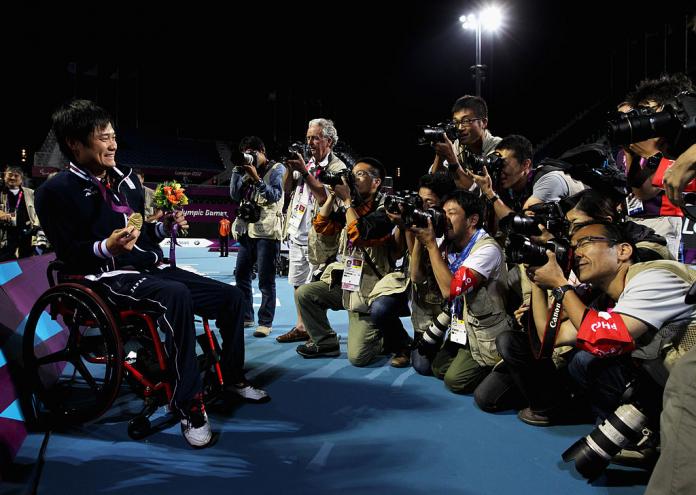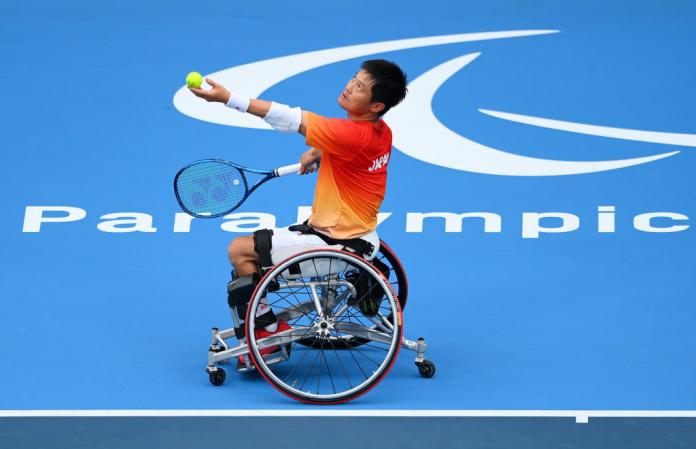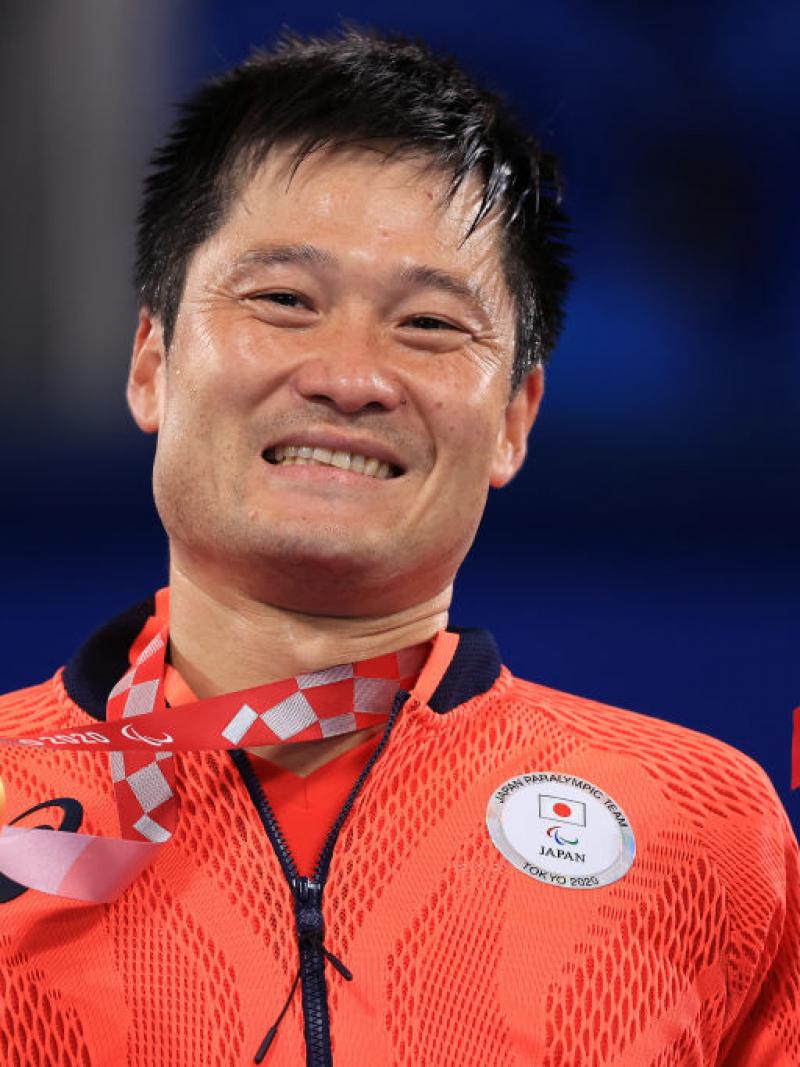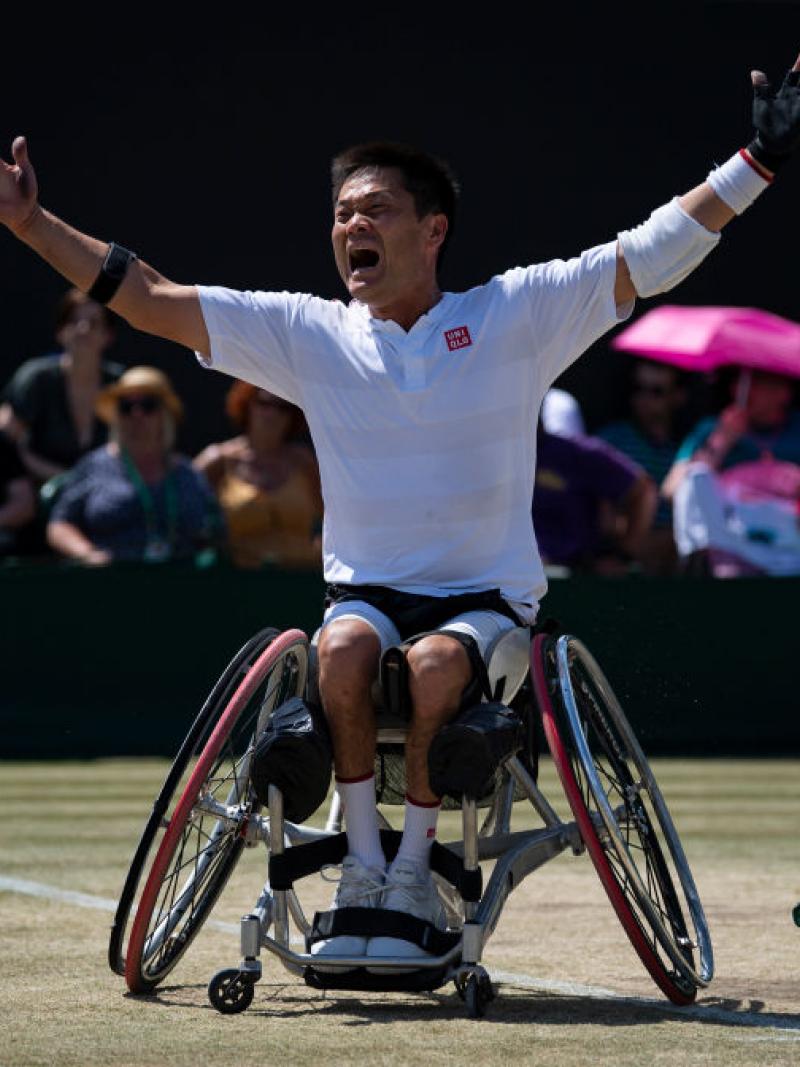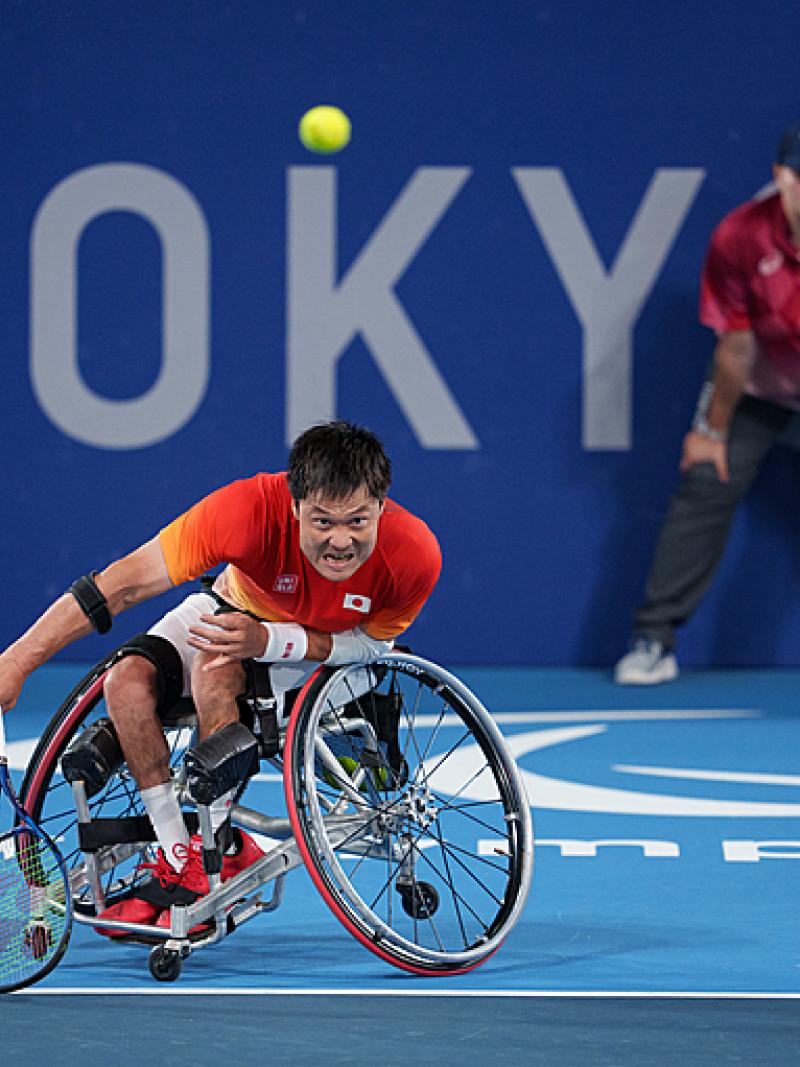Wheelchair tennis great Kunieda talks about past, present and future after retirement
Shingo Kunieda’s incredible wheelchair tennis career included winning four gold medals across five Paralympic Games. After retiring from the sport, he is tackling new challenges in the pool 23 Mar 2023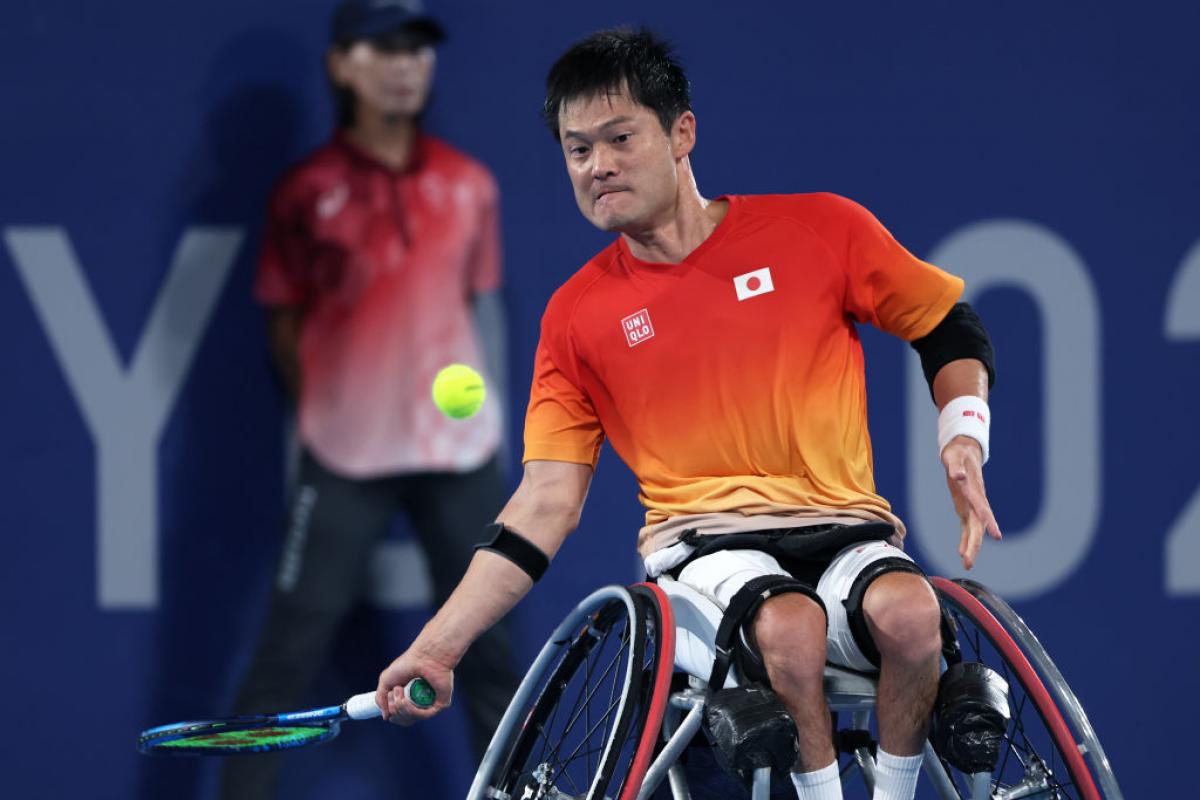
The man who would go on to become one of the greatest wheelchair tennis players of all time, Shingo Kunieda, used to enjoy a different court game in his early years.
Describing himself as a “basketball lover" the Japanese athlete recalled binge-reading a popular comic series about a high school basketball club and playing games with his friends after school despite being the only wheelchair user on the court.
Kunieda initially wanted to pursue wheelchair basketball, but he was not able to find a wheelchair basketball team nearby. Instead, his mother took him to a local tennis club when he was 11 years old to try wheelchair tennis.
He was hesitant at first, but once he saw wheelchair tennis, the sport grew on him and the youngster went on to become one of the world’s best players. He won four Paralympic gold medals and 50 Grand Slam titles before retiring in January 2023 at the age of 38.
“My mother forced me to go to the tennis club. When I went to the place for wheelchair tennis, I saw that the rallies were more intense than I thought and my first impression of wheelchair tennis was that I wanted to try it,” Kunieda said.
“For the first two or three years, I played once or twice a week as a hobby and I really liked that I could see how much I improved every week,” he added. “Tennis was my mother’s hobby and I wouldn’t have started tennis if it wasn’t for her. I’m grateful to her.”
Living a dream
Kunieda started using a wheelchair as a nine-year-old after he was diagnosed with a spinal tumour. He made his Paralympic debut at Athens 2004, where he won the gold medal with Satoshi Saida in the men’s doubles tournament.
In the next Games editions, Kunieda won back-to-back singles titles at Beijing 2008 and London 2012 but made a quarterfinal exit at Rio 2016, where he competed four months after undergoing an elbow surgery.
Kunieda’s “ultimate dream” came true five years later at Tokyo 2020 where he won his fourth Paralympic gold medal by beating Tom Egberink of the Netherlands 6-1, 6-2 in the final.
He broke down in tears after the match at Ariake Tennis Park, saying he had dreamed of competing at the Paralympic Games in Tokyo since the Japanese capital won the bid to host the Games in 2013.
“As a player, I won every title at the Paralympics and Grand Slam tournaments. I had a career during which I can say, with confidence from the bottom of my heart, I was able to accomplish everything I wanted to do,” Kunieda said.
The athlete has become a household name in Japan, expanding the sport’s fanbase and inspiring young wheelchair tennis players, including teenager Tokito Oda, who is currently ranked No. 2 in men’s singles.
In March 2023, Kunieda became the first Para athlete to receive the People’s Honour Award in Japan. Established in 1977, the award has been presented by Japanese Prime Ministers to people who brought a “light of hope” to society through accomplishments in different fields such as sports and culture.
Kunieda received a certificate of the award and a shield from Prime Minister Fumio Kishida on 17 March for raising the popularity of Para sports in the country and giving “dreams and inspiration” to the Japanese people and “bright hope and courage” to society through his distinguished achievements.
Staying close to sports
After closing the curtain on his 21-year international career, Kunieda says he has not yet decided what his next plans are. But he is certain about one thing – he will stay close to sports.
Kunieda has already returned to the basketball court to play the sport he loved during his childhood. He shared a video of himself playing with members of the Japanese national team on social media.
But he is also on a new mission that is to be accomplished not on land, but in the water. Kunieda is relearning how to swim.
“When I played tennis, I didn’t do any other sports due to the risk of getting injured. But I’ve always loved basketball and I can’t swim. So even before I retired, I thought about taking on new challenges,” Kunieda said.
“I want to do things that I’m really interested in because that becomes a source of inspiration. I want to have fun in life.”
Before he started using a wheelchair, Kunieda enjoyed swimming and even mastered the butterfly stroke. But now the Paralympic legend is learning to swim from zero.
“I don’t know how to swim anymore. Right now, I’m learning how to breathe and I’m thinking how difficult it is to move in the water,” he said. “I’m really good on land, but I’m facing this huge challenge in the water. I end up drinking so much water in the pool, and that’s how bad I am at swimming.”
Even though he “nearly drowned” several times during his training sessions, Kunieda said he was recently able to swim 25m. But he is aiming for more.
“I have a simple goal. I want to be able to swim the front crawl or the breaststroke cleanly,” he said.
Paralympic Games No. 6?
In the long run, does the wheelchair tennis legend see himself competing in wheelchair basketball or Para swimming? Will there be a sixth Paralympic Games for the Japanese athlete?
“I get asked that question often,” Kunieda said with a laugh. “But it’s too much of a load so I want to enjoy sports with a light heart, the same way people play sports as a hobby.”

 Facebook
Facebook
 Instagram
Instagram
 Twitter
Twitter
 Youtube
Youtube
 TikTok
TikTok
 Newsletter Subscribe
Newsletter Subscribe

